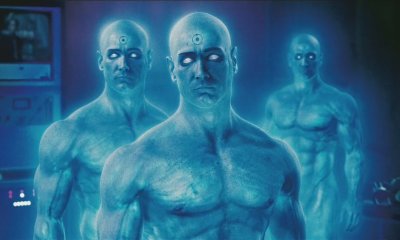For those who haven’t seen seen Gattaca:
- Go see it, it’s a great film.
- Skip this post if you don’t want to be spoiled.
For those who have, be very, very afraid: It has begun.
To sum up: Two companies in the USA are now offering to do you a gene-scan, scanning “about a million and 600,000 sites across the genome” (sic) to look for known genetic illnesses, potential susceptibilities and predispositions, and even more broadly, just ‘traits’. You can buy this service for about USD$1000 from deCODEme or 23andme. If you can buy it for $1000, it’s not implausible that you could get one done to add it to your resume: after all, if it says good things about your health and life expectancy, eyesight, maybe even your intelligence, dilligence or honesty, why wouldn’t you? If it says bad things, you can just leave it out…
…except that someone, somewhere, is going to get a scan that is unarguably better than yours, and they might include theirs with their resume. Then you may well be screwed. After all, who’s going to employ you with your predispositions to diabetes and heart failure when they could get someone with similar skills and no such genetic issues?
The next step, as explored in Gattaca, is kind of inevitable too: If you have the choice of guaranteeing no genetic defects in your child, why on earth wouldn’t you? If it costs $1000 to do a scan for 600,000+ known defects on a single genome, how much would it cost to scan half a dozen eggs and a dozen or more sperm? $20,000? I don’t know if this kind of thing is subject to economies of scale, but it seems plausible, especially when all the eggs and all the sperm are respectively from the same two donors. $20,000 is less than a university degree. I know people who spend more than this getting a single child’s teeth straightened. In today’s money, my own teeth probably come close to it. What if my parents had had the option of ordering ‘straight teeth that fit’ pre-conceptus?
In the simplest case, ask yourself how much you would pay, just to rule out the possibility of down syndrome in your child, a 1-in-1000 chance? This is a genetic test which already exists and is carried out in-utero.
Now look forward thirty years to a world that might resemble that portrayed in Gattaca very closely: Your child is applying for a job. As a routine part of this process, they have to have a genetic scan, or else their resume simply won’t be taken seriously. You either have, or haven’t, had your child through a genetic screening process. If you have, their scan can be assured of being better than average, an asset to their employability. If you haven’t, it’s the luck of the draw, but in a world where screened children are more and more common, your chances are less than 50/50.
The obvious question is: How severe can this really get? Obviously it’s a risk we can see coming, and there’s plenty of robust legal impediment already in pace to stone-wall this kind of discrimination, not to mention the technical barriers that make this kind of commonplace IVF unlikely for the time being. Then again, the average age of parenthood is still going up, bringing exponential increases in both genetic defects and infertility. Demand for IVF and genetic screening is already high. The likes of deCODEme and 23andme promise to supply it.
If this is a good thing, why does it scare me so much?
 First, if you haven’t read Watchmen, go, buy it, read it. It is one of the best things I’ve ever read, unquestionably the finest ‘comic book’ I’ve ever laid hands or eyes on.
First, if you haven’t read Watchmen, go, buy it, read it. It is one of the best things I’ve ever read, unquestionably the finest ‘comic book’ I’ve ever laid hands or eyes on.


